By Grace Atkinson
Photography: Petar Milenkovic
Writers, translators, and poetry lovers came together at Manchester Metropolitan University for a night of Polish and British poetry performance.
The event was hosted by the Manchester Writing School as part of the Radość Pisania Manchester Polish Poetry Festival and curated by Mark Pajak, poet and author of the Laureate’s Choice pamphlet Spitting Distance.
Pajak spoke to aAh! about his previous residency in Poland, and the motivation for the festival. He said, “I was lucky enough to get a residency to go to Krakow and take part in their Milosz Poetry Festival there and it was a wonderful experience but it was also a mixture of hope and also of fear, it was strange.
“The hope was that, now that Manchester was a part of the UNESCO literary network that there would be more fluid exchange between cities, but there was also a fear in that because of Brexit, exchanges like that would become rarer just by being buried under red tape.
“So this event is really a reaction to wards the hope away from the fear and we really want to encourage these experiences and it was just our way of bringing Milosz Poetry Festival here and letting Manchester writers experience it.”
The evening was kicked off by Manchester Met’s Head of English Jess Edwards, who highlighted Manchester’s joining of UNESCO’s worldwide Creative Cities network as a City of Literature, in 2017.
Edwards drew parallels between Manchester and Krakow, which has been a City of Literature since 2013, saying: “Krakow is a wonderful City of Literature. […] They’ve done absolutely amazing things in the city to bring the literature in that city alive and I think they are a model for Manchester going forward.”
He added, “Manchester City of literature is mostly about now. It’s about reading and writing in all its forms in one of the most diverse and multi-lingual cities on earth. So, tonight we’re here to celebrate the literary culture of one of Manchester’s major mother language communities and were privileged to be able to do that with poets that live and write in Poland.”
Monika Rusiecka from the Polish Consulate was next to speak. She said, “This year, Poland celebrates 100 years of regaining independence. We were practically wiped out from the European maps for 123 years we were under partitions from Russia, Prussia and Austria and we survived as a nation because of our culture and because we preserved our culture and literature.”
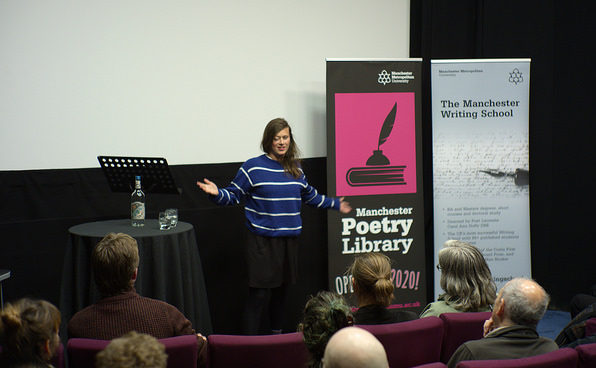
Rusiecka went on to commend the role of translation in literature. She added, “Poetry translation requires special skills and sensitivity not to mention perfect knowledge of both languages. Poet translators are also poets, open-minded individuals with vast knowledge of other peoples culture and past […] You have to trust not only words but also feelings and this is really very difficult.”
Next, Mark Pajak introduced the poets of the evening, and described his hope to find relatives in Krakow, and his preoccupations with the notion of family: “Because I’m part polish, I went in search of family. I didn’t find too much out unfortunately, but while I was there I was writing and thinking about family constantly.”
Pajak went on to read ‘A Set Place’, a stunning poem that describes his aunt’s pregnancy, spiked with the notion of trying to hold on to what is inevitably lost: ‘here let the clean knife hold a slice of ceiling in it’s blade.’
Pajak then introduced the first poet of the evening, Micha Sobol, a philosophy graduate, church historian and author of five poetry collections. In 2017, Sobol was awarded the Gdynia award for his collection Schrony.
Sobol delved into some of the thinking behind his work, putting poetry as a negotiation between human existence and place:
“We have two fundamental questions. One question is about “what?’ – this is the question that philosophers try to answer. The second fundamental question is about ‘places’, and poetry tries to answer the first question not from philosophy tradition but from Bible tradition.
“The first question from the Bible is where are you? Poetry tries to answer this question – where are you? This is what poets try to answer. So I wrote 20 poems about places, I tried to answer the question. I wrote 20 poems about places and about shelters.”
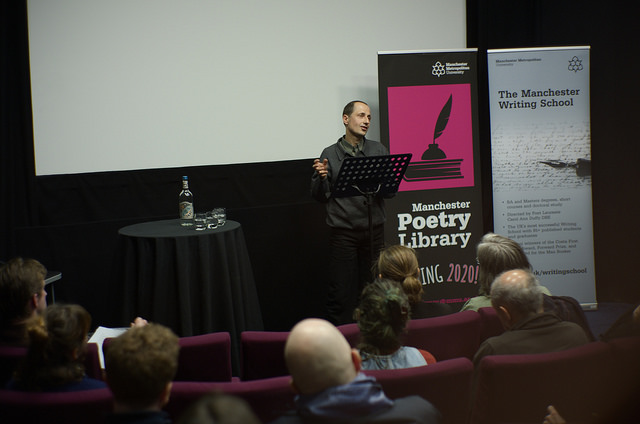
Sobol read four poems in Polish, which Pajak then translated. These poems were tight packages that held huge explorations of history, home and space, mapping the audience through familiar places, from massage parlours to hospitals to restaurants. ‘Shelters’ described structure (‘each shelter has at least two exits, a huge one easy to spot through field glasses and a narrow mouth hidden in a birch corpse behind the enemy’), a poem that put the audience in both a state of exile and of safety all at once.
In ‘Restaurants’, Sobol fits every inch of the universe into a pot of mustard: “over noodles and ravioli, over dumplings rather than lobster in vinaigrette sauce, we discourse on the limitations felt in the face of this excess of dishes and data, of our stomachs and minds”.
These poems put the audience into transit while, at the same time, placing us firmly into the familiar.
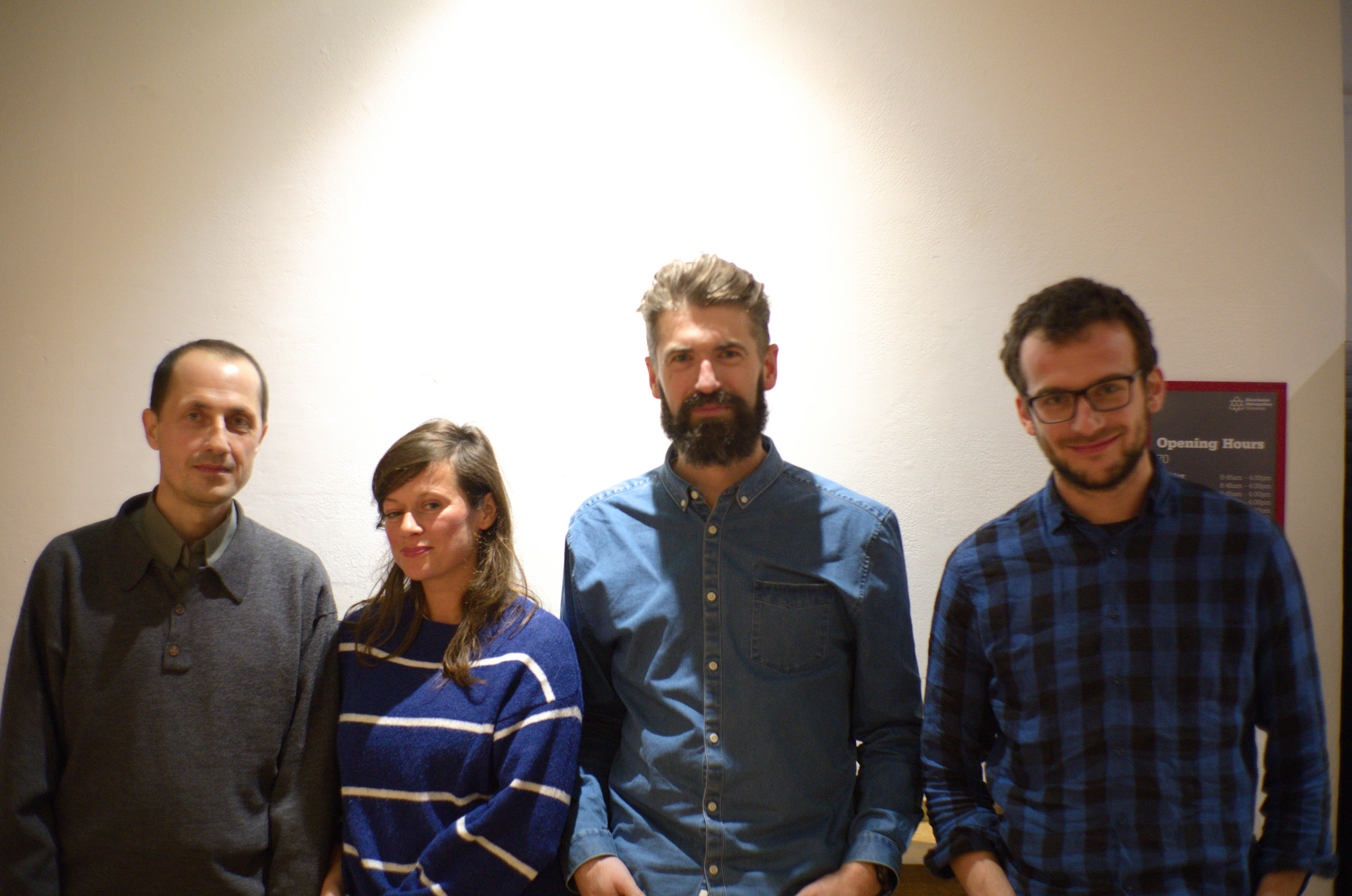
Next to read was Bohdan Piasecki, a poet from Poland, based in Birmingham. He has previously read extensively from the upstairs room in an Eastbourne pub to the main stage of the Birmingham Repertory Theatre, from underground Tokyo clubs to tramways in Paris, from a bookshop in Beijing to an airfield in Germany, from niche podcasts to BBC Radio.
Piasecki has worked as Director of Education on the Spoken Word in Education MA course at Goldsmiths University and has been a regular Visiting Lecturer in Creative Writing at the University of Birmingham.
Piasecki began by reading a set of small, biographical poems. “These come from Hull,” Piasecki began, explaining how he made these poems from the dialogue he had with Polish residents in the City of Culture, where he was asked to engage the Polish community with poetry.
With that, Piasecki began to read short but startling vignettes, told in the voices of the people he had spoken to. One reminisced on some land he owned back in Poland: “If you want to build stairs, styraight trees are worthless. Find me a fucked up oak, […] saw it into planks and you will see all those knots, they just make you want to climb.”
Another spoke in the voice of those that work at lengths for their family, “Children who know more about my eyelids than about my eyes”. Each poem was incredibly powerful capture of character, while also carrying touching increments of what it means to live away form home.
Next, Piasecki read ‘For Reasons that Have Become Abundantly Clear, My Daughter is Crying’, a poem that negotiates the fears of children (‘My son is crying he says ‘my socks are ignoring my feet’ […] his nose is a wet mouse trying to hide behind my clavicol”) and the performance of parental protection ‘I breathe in the story and try to make my lungs big enough for her to curl up in’.
The poem darted between Polish and English, so that each half of the audience (who were of mixed nationality) had moments that weren’t understood, like the unknown language a child hears when being explained something they can’t yet understand.
Polish spoken word poet, performer, doctor of culture studies and curator of independent events of new media art, Weronika M. Lewandowska held the final performance.
Lewandowska did not have translations for her work, and let those of us who did not speak Polish to be hypnotized by her skilled harness of rhythm and tone.
Using sound effects with her voice and body, Lewandowska performed sensual, whispering lines between pulses of raw, repetitive song and rhythm.
These poems were like negotiations with the self, between the body and mind, between music and words, nner conversations that hummed and erupted amongst the audience.
After each performance, Lewandowska asked the audience for their own understandings of the piece, transforming the reading into a collaborative event, and cracking the spine of her words out into the room.
“Do we need translation?”, Lewandowska asked the audience. “Because also this meeting is about translations so we have different kinds of poetry and different things in poetry, so right now you are all my translators.”
The evening ended with another poem from Pajak. He said: “So we’ve had poems of shelter and home and family and raw poems and music and sensuality. I started tonight with the notion of family, and I think the most important family members we have are friends, and this whole festival was about creating friendship.”
Pajak read ‘After Closing Time’ which divulges into the friendship between him and a childhood friend: “Now we are what the world considers men, which is to say we’ve learnt that falling is inevitable, yet here we are still side by side”.
Though the poem was one about a private friendship, the audience was left under the notion of friendship of a wider scale, a friendship between cities, and of the beauty that comes from collaboration in translation.
The next event is the Manchester Writing School series is Writing Place: Creative-Critical Conversations: ‘More than 100 Stories: A Collaboration,’ taking place on 8 November, 2018.

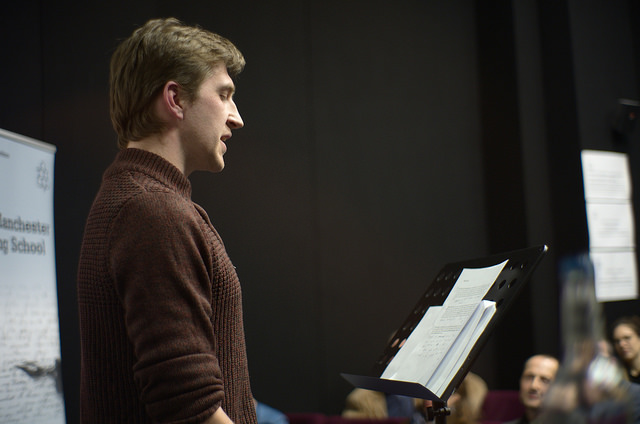



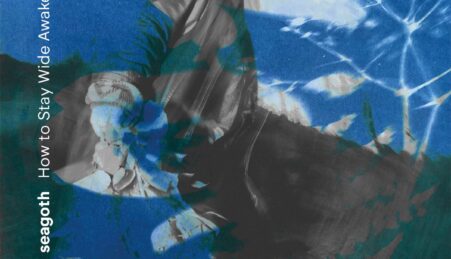
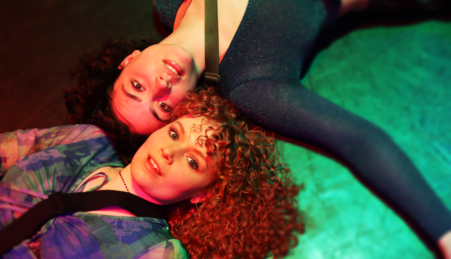
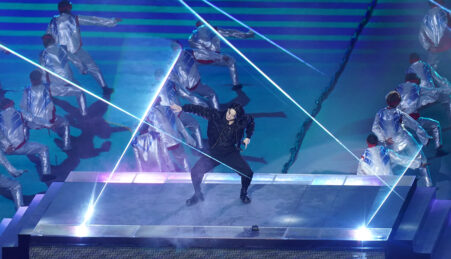
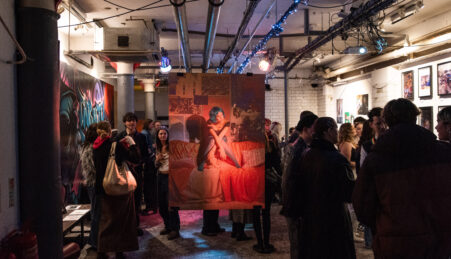
Leave a reply